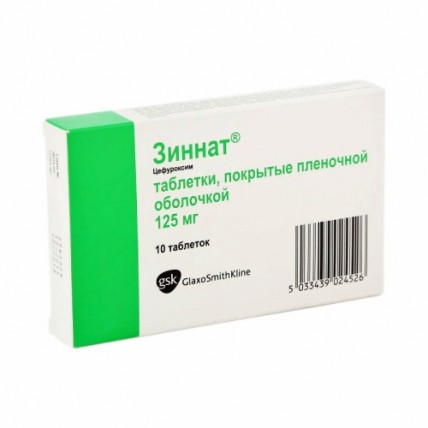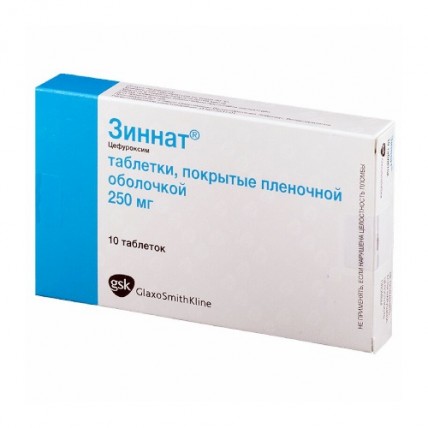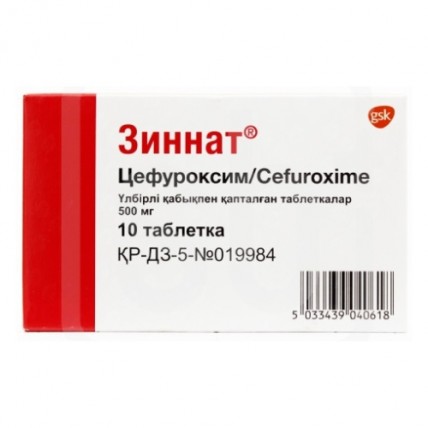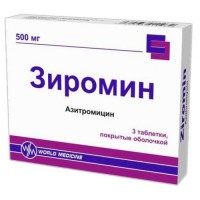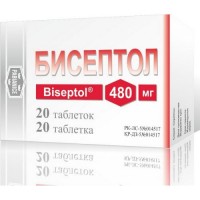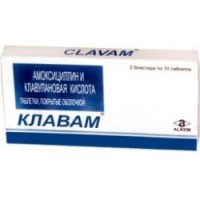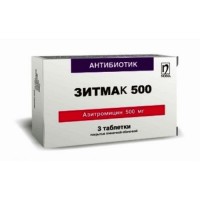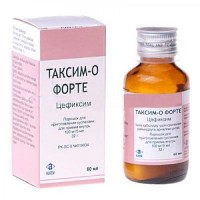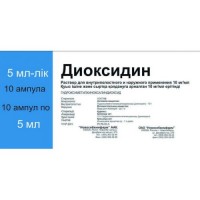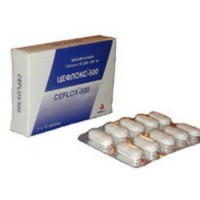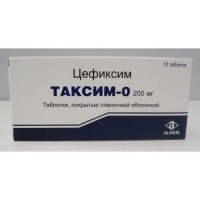Zinnat® (Cefuroxime) 125 mg / 250 mg / 500 mg tablets
- $15.00
What is Zinnat® (Cefuroxime)?
Zinnat® is an antibiotic that belongs to the second-generation cephalosporins class.
It is used to treat various bacterial infections in different parts of the body.
The active ingredient, cefuroxime, targets and kills bacteria that cause infections, making it effective in treating respiratory tract infections, skin infections, urinary tract infections, and early Lyme disease.
Zinnat® is available in tablet form in dosages of 125 mg, 250 mg, and 500 mg.
It is suitable for both adults and children, although the dosage is adjusted based on the age and weight of the patient. It is particularly useful in situations where infections are resistant to other types of antibiotics, such as penicillins.
What Are the Uses of Zinnat®?
Zinnat® is used to treat infections caused by bacteria susceptible to cefuroxime. It is commonly prescribed for:
- Acute streptococcal tonsillitis and pharyngitis
- Acute bacterial sinusitis
- Acute otitis media
- Exacerbation of chronic bronchitis
- Cystitis (bladder infection)
- Pyelonephritis (kidney infection)
- Skin and soft tissue infections (e.g., boils, impetigo)
- Early-stage Lyme disease
How Does Zinnat® Work?
Zinnat® works by interfering with the formation of bacterial cell walls, which are essential for the bacteria's survival. It contains cefuroxime, which blocks the enzymes needed to build and maintain the cell wall.
Without a properly formed cell wall, the bacteria become weak and eventually die, which helps to clear up the infection.
Cefuroxime is effective against a wide range of bacteria, including both Gram-positive and Gram-negative types.
This broad activity makes it versatile for treating infections like sinusitis, bronchitis, skin infections, and urinary infections.
Because it actively kills bacteria, rather than just stopping their growth, Zinnat® can help clear infections more effectively.
Who Should Not Use Zinnat®?
- Individuals with known hypersensitivity to cephalosporins, cefuroxime, or any of the components of the medication.
- People who have had severe allergic reactions to any beta-lactam antibiotic (including penicillins, monobactams, or carbapenems).
- Children under the age of 6 years (for the 125 mg and 250 mg doses) or under 12 years (for the 500 mg dose).
What Precautions Should Be Taken with Zinnat®?
Care should be taken when prescribing Zinnat® to patients with a history of non-severe allergic reactions to beta-lactam antibiotics.
The use of antacids may reduce the absorption of the drug, affecting its efficacy.
Patients should take Zinnat® with food for better absorption.
Can Zinnat® Interact with Other Medications?
Yes, Zinnat® may interact with other medications:
- Antacids: Medications that reduce stomach acidity can decrease the bioavailability of Zinnat®.
- Oral contraceptives: Antibiotics like Zinnat® can alter gut flora, reducing the effectiveness of combined oral contraceptives.
- Probenecid: When taken with probenecid, the concentration of Zinnat® increases by 50%, and such use is not recommended.
- Anticoagulants: Co-administration with oral anticoagulants may increase the international normalized ratio (INR), requiring careful monitoring.
What Are the Side Effects of Zinnat®?
Like all antibiotics, Zinnat® may cause some side effects. Common side effects include:
- Frequent Side Effects: Gastrointestinal symptoms like diarrhea, nausea, abdominal pain, and increased liver enzymes. Headaches and dizziness may also occur.
- Less Frequent Side Effects: Skin rash, vomiting, and positive Coombs test results.
- Rare Reactions: Severe allergic reactions such as Stevens-Johnson syndrome, hemolytic anemia, and anaphylaxis.
In some cases, patients being treated for Lyme disease may experience the Jarisch-Herxheimer reaction, which involves fever, chills, and increased symptoms as a response to bacterial death. This reaction typically resolves without specific treatment.
How Should Zinnat® Be Taken?
Zinnat® is taken orally, ideally with food to enhance absorption. Dosage varies depending on the type of infection:
Adults and Children ≥40 kg:
- Acute tonsillitis, sinusitis: 250 mg twice daily.
- Otitis media, chronic bronchitis exacerbation: 500 mg twice daily.
- Cystitis and uncomplicated skin infections: 250 mg twice daily.
- Early-stage Lyme disease: 500 mg twice daily for 10 to 21 days.
Children <40 kg:
- Acute tonsillitis, sinusitis: 10 mg/kg twice daily, up to 125 mg per dose.
- Otitis media and skin infections: 15 mg/kg twice daily, up to 250 mg per dose.
The duration of treatment generally ranges from 5 to 10 days, depending on the severity of the infection.
What Special Considerations Are There for Certain Patients?
- Kidney Impairment: Dose adjustments are necessary for patients with impaired kidney function. The recommended dosing frequency depends on the level of renal impairment.
- Pregnancy and Lactation: Zinnat® can be used during pregnancy only when the benefits outweigh potential risks. It passes into breast milk in small amounts, and while adverse effects are unlikely, mothers should monitor infants for diarrhea or thrush.
- Liver Impairment: No specific adjustment is generally needed, as cefuroxime is primarily excreted through the kidneys.
What Should Be Done in Case of an Overdose?
In case of overdose, symptoms may include neurological effects such as excitation, convulsions, or even coma, particularly if kidney function is compromised.
Symptomatic treatment should be provided, and the medication can be effectively removed through hemodialysis or peritoneal dialysis if necessary.
How Should Zinnat® Be Stored?
Zinnat® should be stored at a temperature not exceeding 30°C (86°F), out of reach of children, and must not be used after the expiry date indicated on the packaging.
How Long Should Treatment Last?
The duration of treatment with Zinnat® generally lasts between 5 to 10 days, depending on the specific type and severity of the infection being treated.
